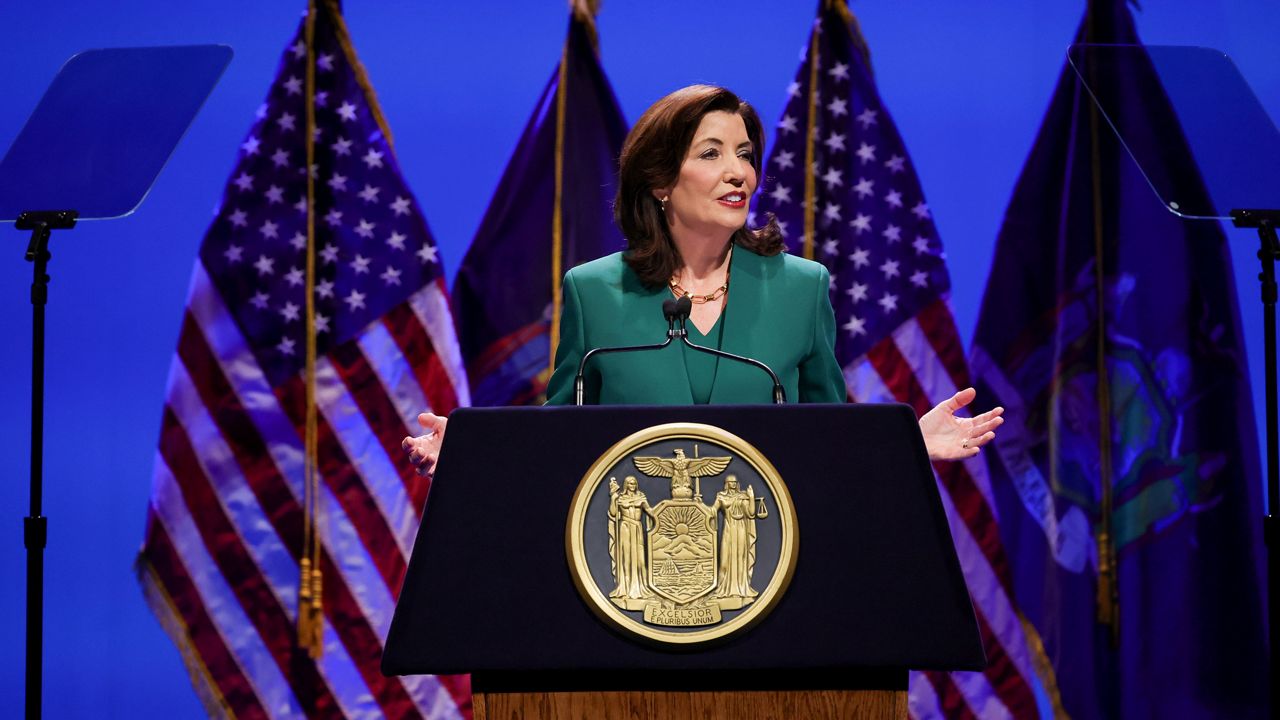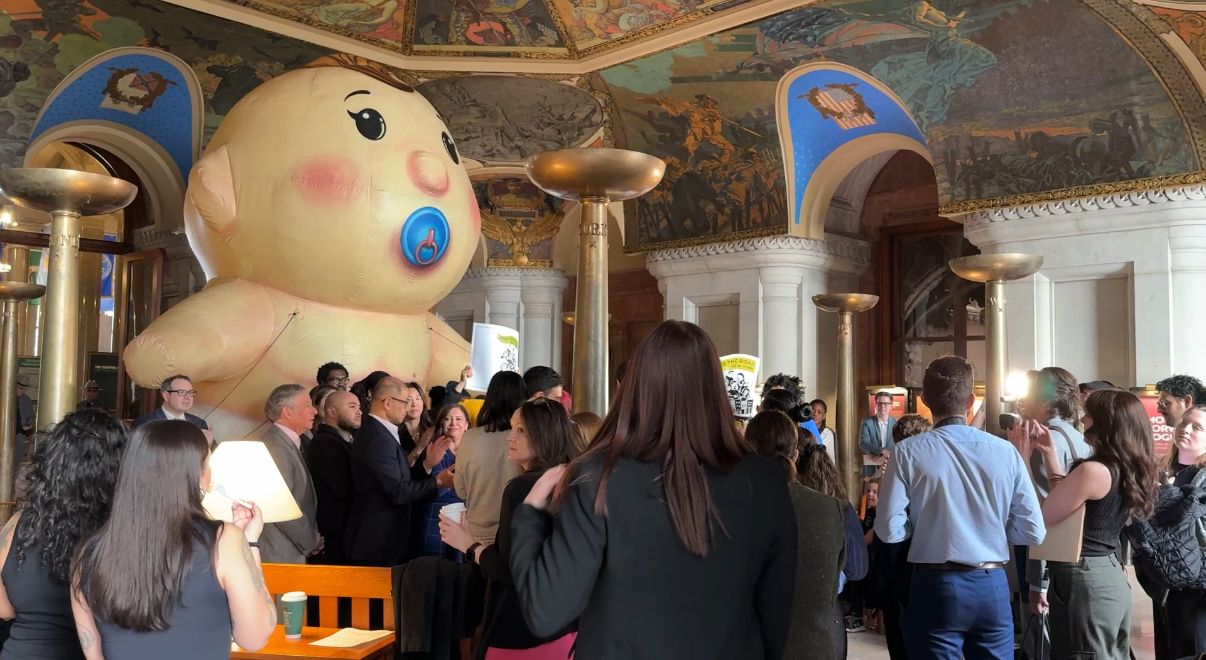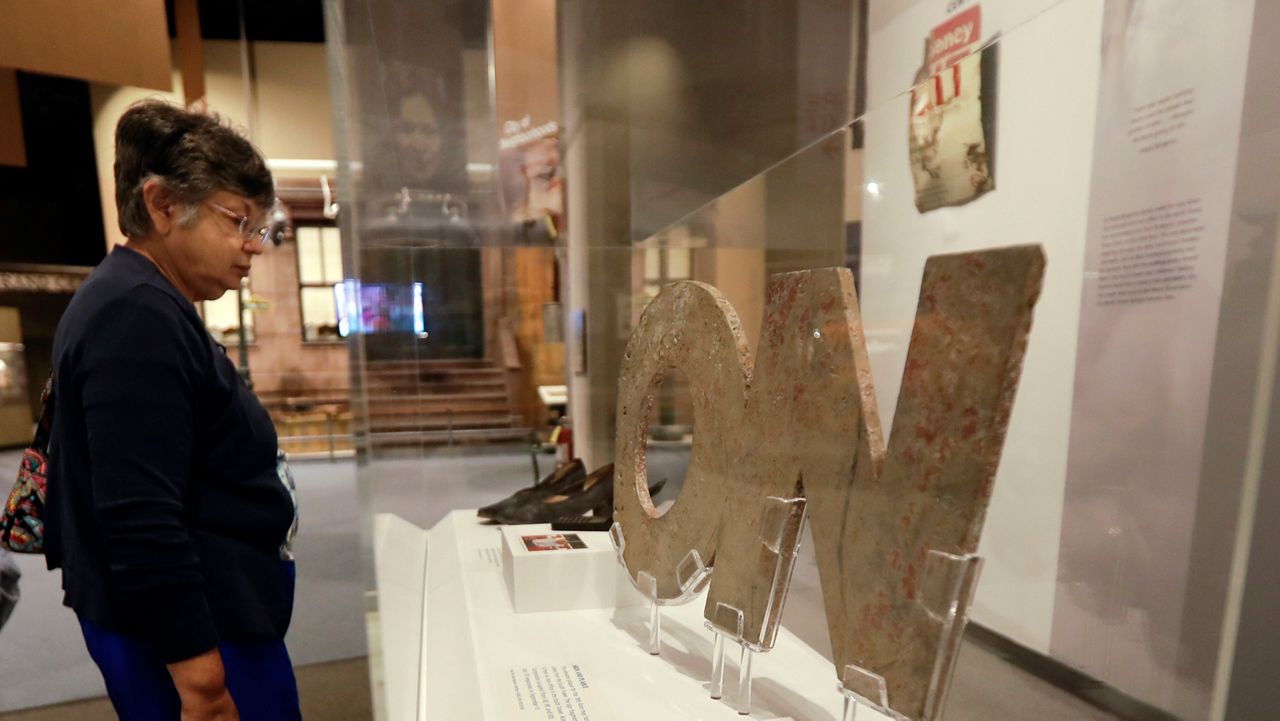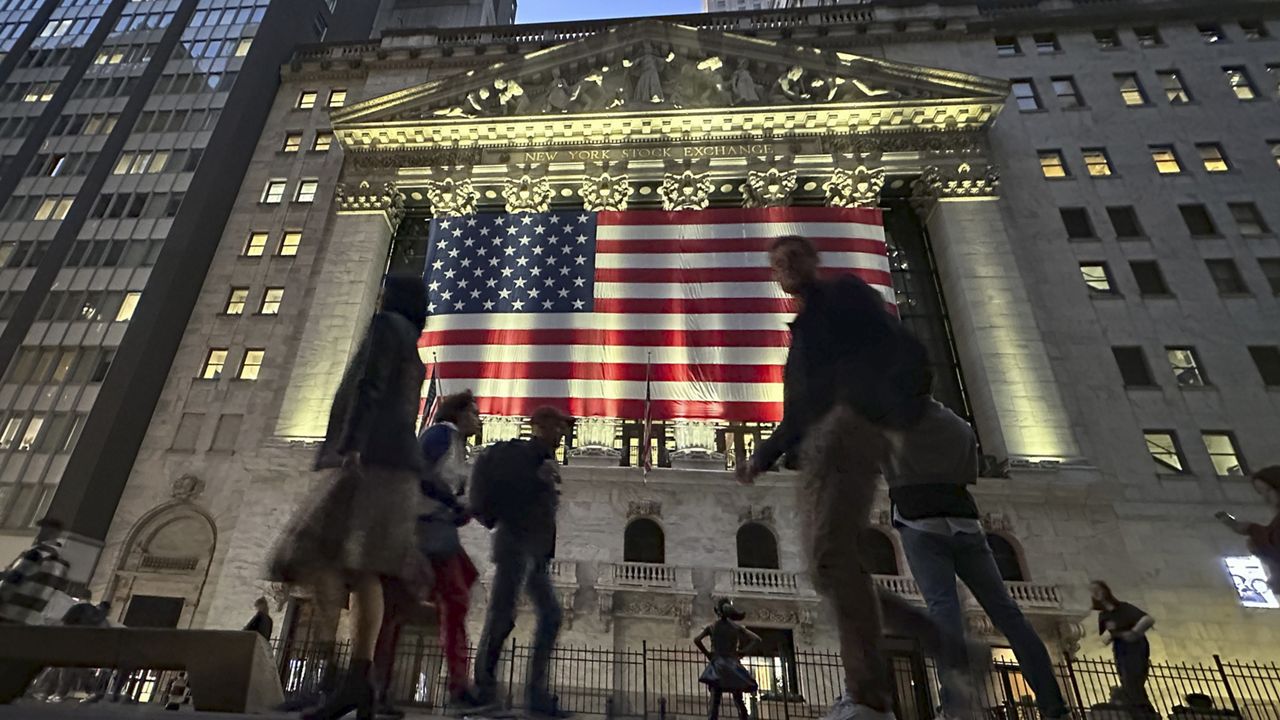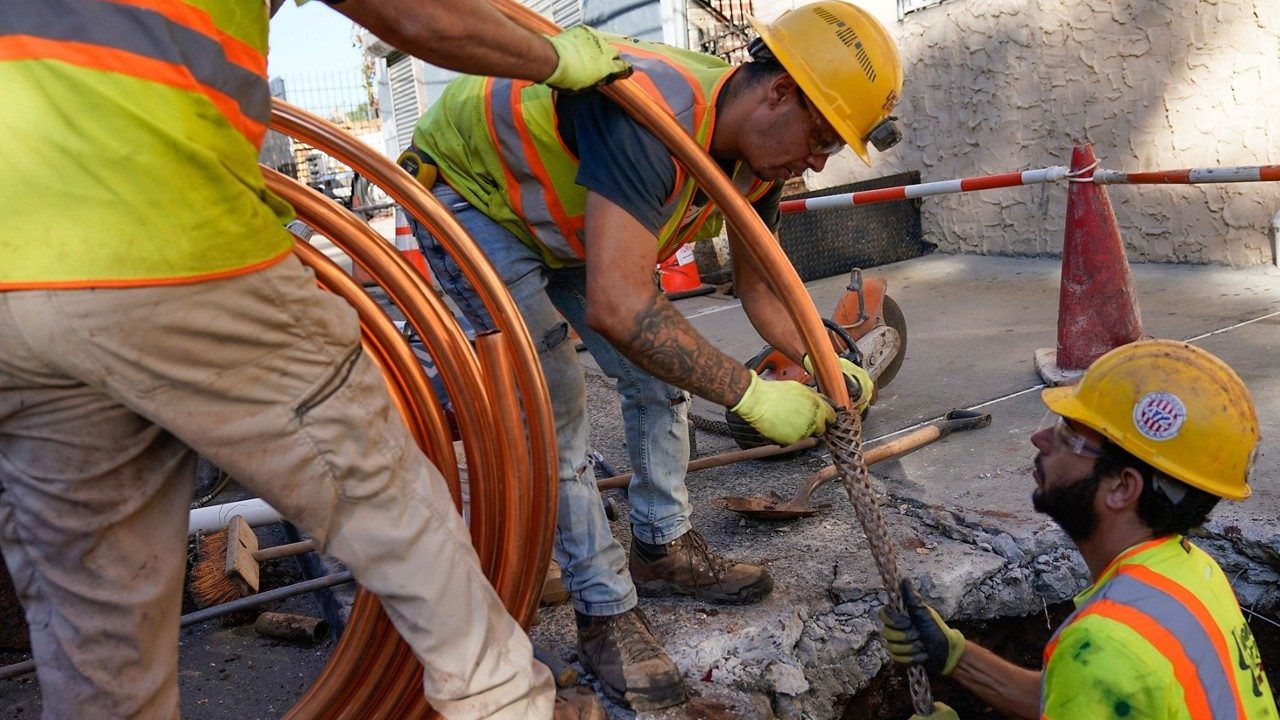The fight to fully fund the federal government's promise to cover the medical bills of people living with 9/11-related illnesses is ramping up 23 years after the terrorist attacks of Sept. 11, 2001, which killed nearly 3,000 people.
Elected officials expect the World Trade Center Health program will run out of money in 2027 and leave victims without assistance — even after $1.7 billion invested in the last two years. The federal fund was created in 2011 to provide medical treatment and monitoring for survivors who develop cancer stemming from the aftermath of the attacks or other related illnesses.
"If we wait until 2027, doctors and nurses and case managers who treat us and monitor us and take care of us — they're going to quit," said John Feal — a 9/11 volunteer and an advocate leading the charge for Congress to fix the program's funding formula.
Feal is the president and founder of the nonprofit FealGood Foundation, which helps emergency personnel who sustain injuries.
A steel beam crushed Feal's foot when he was working as a demolition supervisor at ground zero, requiring dozens of surgeries and partial amputation. The 57-year-old continues to suffer from arthritis and chronic issues in his hip and lower back.
Thousands of people who responded or cleaned debris in Lower Manhattan in the months that followed continue to pay for their sacrifice.
The World Trade Center Health Program covers medical treatment and monitoring for 9/11-related cancers and conditions through 2090, but the federal fund is about to run dry after the cost of treatment has surpassed initial projections.
Without mandatory funding, the program faces an uncertain future – prompting a bipartisan effort by federal lawmakers to fortify the program for good, and prevent cuts in services for survivors, responders and volunteers.
"If a 9/11 responder goes to the World Trade Center Health program twice a week or twice a month, they're now going to go every four months," Feal said. "If you get your prescriptions in the mail once a month, it might come every three months. We're not going to get to that. We won't allow that — we won't stand for it."
U.S. Sen. Kirsten Gillibrand, D-N.Y., sponsors the 9/11 Responder and Survivor Health Funding Correction Act of 2024 to permanently fund the program through 2090.
"Many of the people who might feel fine today may still be diagnosed with 9/11-related conditions in the coming years," Gillibrand said in July when the legislation was introduced.
Gillibrand and U.S. Senate Majority Leader Chuck Schumer, D-N.Y., announced the bill together this summer, which would also increase funding for research and data collection about 9/11-related cancers and conditions.
Dan Hansen, an attorney who has helped victims and their families file claims, said the government's promise to fund the cost of treatment has surpassed initial projections.
"At the time of 9/11, the average age is about 39 or so of the responders, and now they're in their early 60s," explained Hansen, senior founding partner of Hansen & Rosasco in Manhattan. "And they're really seeing the effects of these cancers 23 years later, now. They're being diagnosed at an alarming rate."
There's also an effort to expand funding eligibility for responders present at the sites of the Pentagon or Shanksville, Pennsylvania.
Feal said lawmakers must act quickly to live up to their promise to "Never Forget" the 9/11 responders and volunteers who continue to pay for their sacrifice.
"'Never forget' — that's a bumper sticker," Feal said. "That is a bumper sticker at best. We need to be engaged."
To commemorate Wednesday's anniversary, Gov. Kathy Hochul signed legislation to provide benefits to families of 9/11 first responders who died due to an illness related to their service at the scene of the attacks or the days afterward.
At least 60 types of cancer and many other conditions have been tied to exposure to dust and ash from when the towers fell. Any person who volunteered, lived or worked near the World Trade Center or the surrounding area from September 2001 through spring 2002 should inquire about eligibility for assistance from the federal September Eleventh Victim Compensation fund or World Trade Center Health program.








